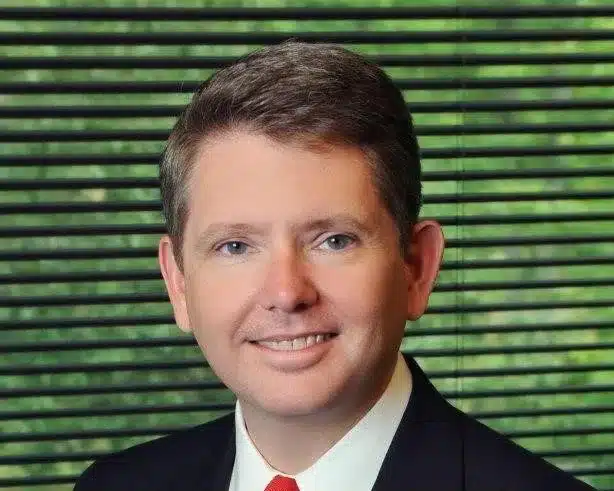This article first appeared on the Magnolia Tribune.

Columnist Trey Dellinger says Diversity, Equity and Inclusion at its worst encourages students to stereotype others as either oppressors or oppressed, victims or victimizers, colonizers or colonized. That flavor of DEI fosters division, not unity.
This week we celebrate Dr. Martin Luther King, Jr.’s birthday. I first read his “I Have a Dream” speech in my 9th grade English textbook, waiting for a haircut. Such profound words leave a lasting impression of time and place:
“I have a dream that my four little children will one day live in a nation where they will not be judged by the color of their skin but by the content of their character.”
America imperfectly yet increasingly embraced that ideal. We honored diversity that penetrates surface stereotypes to reveal individual dignity. We advanced equal rights and meritocratic inclusiveness. Let the best person and best ideas win.
We pursued a common identity, honored common holidays, and shared a literary canon. Most cherished a common faith yet counted religious tolerance as our first enumerated right. One nation, under God, indivisible. We did not have or want unanimity but had unity where it mattered. What we shared deep down mattered more than surface differences. We had not fully realized the dream but were turning a corner.
Universities were key to that progress, embracing traditional concepts of diversity, equal opportunity, and inclusiveness. They increasingly opened doors to diverse individuals and ideas. They were the crucibles of knowledge, pursuing truth. They took in fresh-faced kids and armed them with our culture’s best, preparing them for a rough-and-tumble world. That kind of higher education powered the American Dream.
Now many of our nation’s universities have lost their way. Leading universities turned conventional concepts of diversity, equal rights, and inclusiveness upside down through “Diversity, Equity and Inclusion” (DEI).
This inverted form of DEI affirms tribalism centered on race, ethnicity, and gender. It elevates group identity over individual character. Instead of equal opportunity through neutral standards, DEI now pushes equal outcomes. Instead of hard truth, DEI favors soft “perspectives.” Instead of inclusiveness as meritocracy, DEI favors “representation,” giving seats at the table based on demographic categories rather than merit.
DEI at its worst encourages students to stereotype others as either oppressors or oppressed, victims or victimizers, colonizers or colonized. That flavor of DEI fosters division, not unity. It is the 21st century heir of the multiculturalism that concerned Kennedy administration alumnus Arthur Schlesinger, Jr. A liberal Democrat, he worried in the 1990s that we were experiencing “The Disuniting of America.” Three decades later, we are much further down the road of disunity. Unsurprisingly, a recent Wall-Street Journal poll showed patriotism in free-fall, especially among the young and college educated.
How do Mississippi universities and colleges fit into all this? It’s hard to assess far from campus. So, a grain of salt is appropriate. The critique should not take on the tenor of a political campaign or paint everyone with the same brush. Many good people lead and staff our universities. They must attract students, faculty and investment amidst a tough national higher education culture that is skeptical of Mississippi.
Mississippi DEI programs’ fiscal footprint is small, comprising less than one percent of university expenditures. Reports to the State Auditor show over a four-year span our universities and colleges spent about $23 million on DEI programs, including about $11 million from state funds.
Yet, DEI is not peripheral here. IHL and university mission statements show DEI in some form is central to their mission. DEI language is endemic in their public communications. Harder to ascertain is how far DEI ideology penetrates day-to-day Mississippi campus life. Some Mississippi universities are more friendly to free speech than national peers. The two largest, Ole Miss and Mississippi State, rank average and above average, respectively, according to the Foundation for Individual Rights’ and Expression (FIRE). Southern Mississippi got FIRE’s positive “green light” ranking.
But there are signs the national DEI ideology is taking a firmer hold.
IHL policy requires “that the performance evaluation of all institutional executive officers and the [IHL] Commissioner include[s] diversity outcomes as among the most significant elements.” Note the operative metric is outcomes, not equal standards.
One university’s response to the auditor’s survey contended students can best learn from faculty of the same race, sex, or gender – a retrograde concept reminiscent of the segregation era.
Our universities’ DEI program descriptions use standard-issue buzzwords like “intersectional identity” and “marginalized groups.” “Equality” is replaced by “equity.” State funded seminars and retreats affirm race, gender, LGBTQ+ identity and rich-versus-poor “class consciousness.” Campuses feature periodic (presumably voluntary) bias awareness and sensitivity training sessions.
Mississippi’s public universities are critical assets. DEI is only part of their story. But, as citizens and graduates who take pride in them, we have a responsibility to ensure DEI doesn’t damage them as it has some of our nation’s universities.
Mississippians should know better than most that tribalism must be put behind us. Our universities – and all of us – should strive to judge others as individuals according to the content of their character.
This article first appeared on the Magnolia Tribune and is republished here under a Creative Commons license.
Read original article by clicking here.

